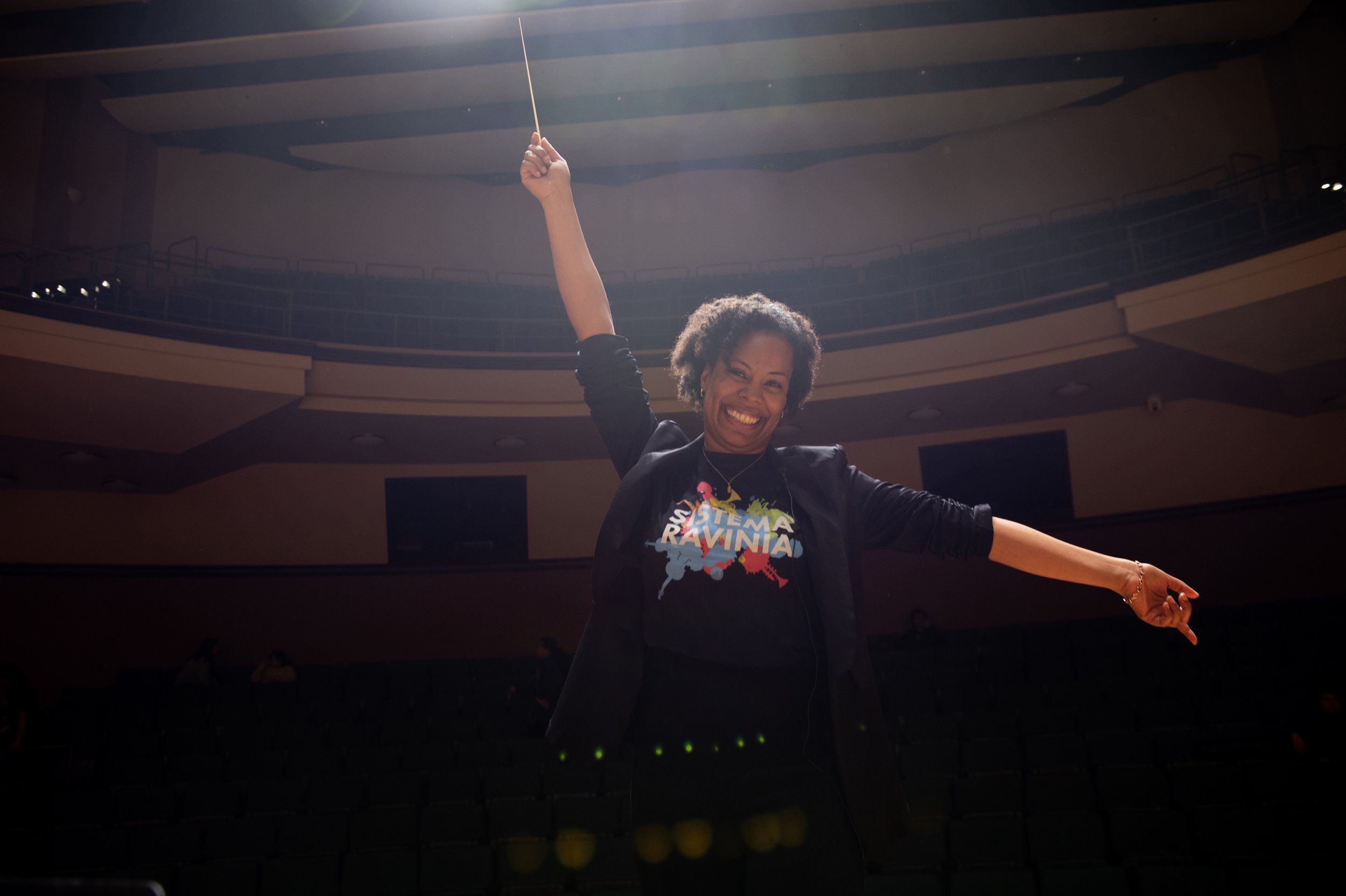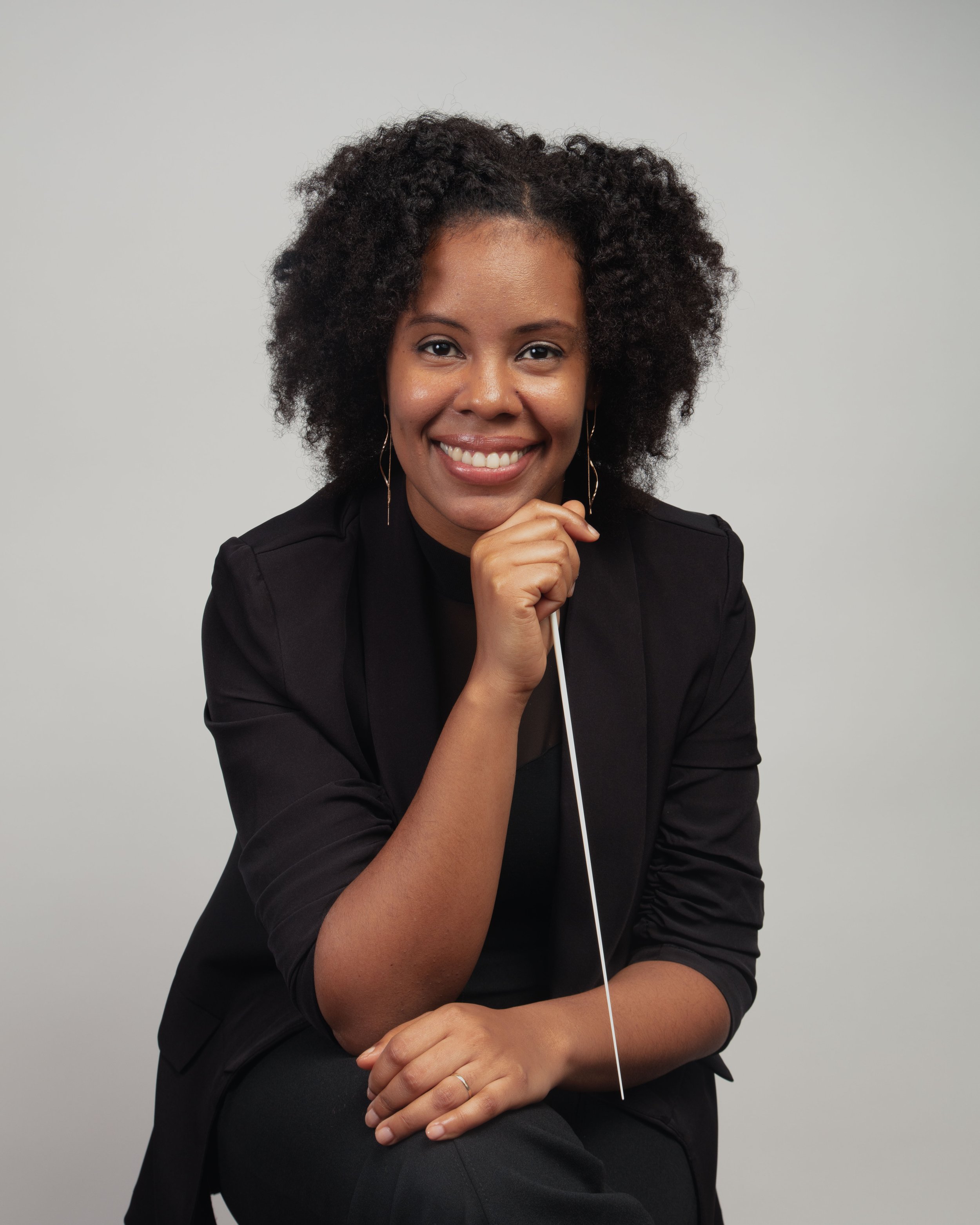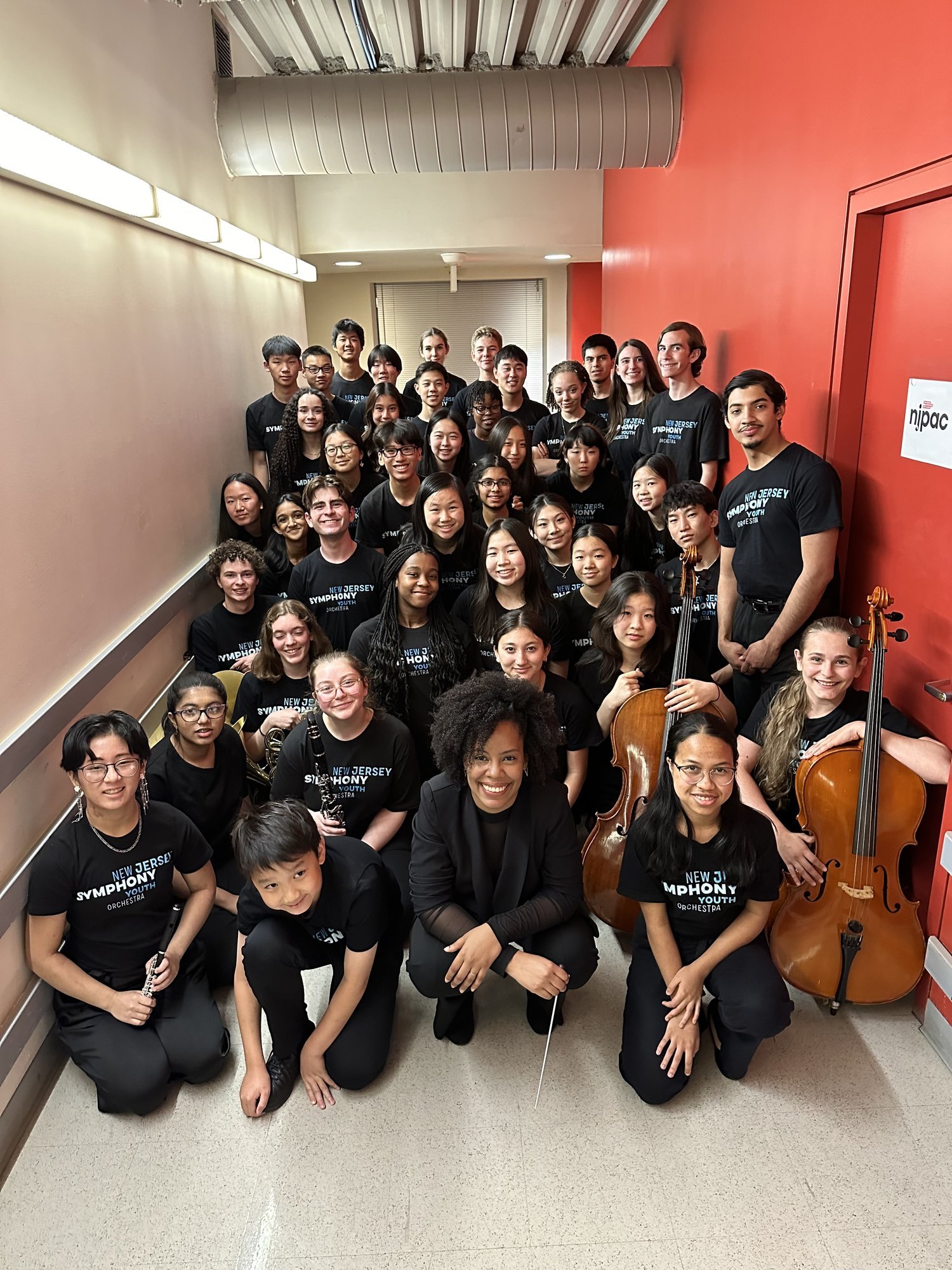By Kyle MacMillan
A year after graduating from the University of Arts in Havana in 2018, Jessica Altarriba left Cuba for Spain, planning to pursue her dream of a conducting career in a country where she spoke the language and was confident she would feel comfortable.
But COVID-19 soon hit, and things didn’t quite work out. Looking for a change, she applied for a Taki Alsop Conducting Fellowship but was turned down for lack of experience. But famed conductor Marin Alsop, the program’s founder, saw what she described as “huge potential,” so she reached out and urged Altarriba to begin master’s studies under her tutelage at the Peabody Institute in Baltimore.
That’s what the now 29-year-old conductor did in 2022, and she has enjoyed success after success since, including her May appointment as Associate Conductor of the Utah Symphony, a post that will begin in September.
“That was my first time in the United States,” she said about her enrollment at Peabody. “It wasn’t at all in my plans. My life perspective was more leaning to Europe, but then Marin just opened my eyes and she was like, ‘It’s going to be great for you. You’re going to have plenty of opportunities to develop your career, which is something you really need.’”
Ravinia Festival audiences July 10 will get their first chance to witness the Cuban native in action when Altarriba joins Alsop, Ravinia’s Chief Conductor, in leading the National Seminario Ravinia Orchestra and National Orchestral Institute + Festival (NOI+F) Orchestra. Alsop believes it is a much-deserved opportunity for the up-and-comer.
“Jessica has worked incredibly hard,” the veteran conductor said via email. “She never takes any situation for granted. She is a kind and helpful colleague, is smart and hugely motivated, and always puts the composer first. These are qualities that help develop true artists, and I have every expectation that Jessica will have a wonderful career and make important contributions to our field.”
Last summer, Ravinia teamed with the Chicago Philharmonic to present the first-ever National Seminario. It brought together 130 students from 23 programs across the United States and Canada inspired by El Sistema, an innovative music-education initiative that originated in Venezuela. One of the largest American programs is Sistema Ravinia, which operates under the auspices of Ravinia’s Reach Teach Play, a multifaceted portfolio of education and community engagement offerings. In its 11th year, the Sistema Ravinia serves 250 primarily Black and Latino elementary-and middle-school children around Waukegan and the Austin and Lawndale neighborhoods of Chicago.
For this second National Seminario, another group of 130 students, representatives of now 43 programs across North America as well as from Sweden and Greece, will gather July 7–10 under the tutelage of Altarriba and Alsop—a mentee working with her mentor to in turn mentor a new generation of musicians. The young participants will participate in intensive orchestral training and present a culminating concert on the Pavilion stage wide-by-side with musicians from the NOI+F. Alsop has served as music director of the summer pre-professional training program based at the University of Maryland in College Park since 2020. Altarriba got her first inkling of this opportunity when Alsop asked her at the beginning of this year’s spring semester at Peabody what she was doing this summer, and she relayed that she had nothing booked.
“I’m not like Marin, who has her entire life planned for the next five years,” she quipped. The veteran said she might have something for her mentee, and only later Altarriba did find out it would be working alongside Alsop at Ravinia. “At that moment, I was beyond words, because Ravinia is a really important festival in the United States,” she said. “To have a chance to be part of it is a pleasure and a privilege.”
Considering she is not yet 30 and is barely six years removed from receiving her bachelor’s degree, Altarriba is still wrapping her head around the idea of shifting from student into the role of pedagogue. “Sometimes the speed of your profession, you cannot calculate,” she said. “I’m honestly wondering how I’m going to end up mentoring when I’m being mentored.” But she plans to not “overthink” this new role. “I’m just going to try to be honest and try to share with them what I have learned and the positive impact that music has had during my life,” she said.
Cuba has an intensive music education system based on that of the Soviet Union, which played a major role in the island country from 1959 through the collapse of that regime in 1991. Altarriba began studying flute and piano when she was 7, never giving any thought to conducting until she saw a female conductor, Cosette Justo Valdés, leading a rehearsal of Sergei Prokofiev’s narrated children’s work Peter and the Wolf at the Esteban Salas Conservatory in Santiago de Cuba, where she was studying when she was 18. “I was really amazed because I had never seen a female doing that,” she said. “In Cuba, we are pretty traditional, so we only have male conductors.”
During the encounter, she sensed an immediate connection to conducting and saw the orchestra as a place that provides freedom for musical exploration—feelings she never had as a pianist or flutist. Afterward, she approached Valdés, now Resident Conductor of the Edmonton Symphony Orchestra in Canada, who agreed to give her conducting lessons. In addition, the conductor helped her gain admission to the University of the Arts in Havana, where she earned her bachelor’s degree in conducting.
“From then, I have experienced the most rewarding moments as a musician, as an artist, and as a human being, which is the great part of being a conductor—how much you can connect with people. For me, that’s the happy part of the profession,” she said.
After graduation, Altarriba decided to pursue her conducting career in Spain—a difficult decision that meant leaving her native country and her family. “It’s never a decision that you make because you want to,” she said. “It’s maybe the country forcing you to do it, because there are no resources, because there is no future for you as a young musician there. The system doesn’t support you in the way it should, and the restrictions to go out are pretty severe. So, I was just trying to find a way to create a better future.”
Three years later, at Alsop’s behest, she made the move to the United States to pursue her master’s degree in conducting, which she aims to finish this fall. “It has been a real challenge to work and at the same time study,” she said. Earlier this year, Altarriba applied a second time to the Taki Fellowship, which Alsop founded in 2002 as a means to provide coaching and other career support for emerging female conductors.
Notable alumni include Karina Canellakis (2013), Chief Conductor of the Netherlands Radio Philharmonic Orchestra, and Mei-Ann Chen (2007), music director of the Chicago Sinfonietta. [Carolyn Kuan (2003) and Valentina Peleggi (2015) lead Chicago Symphony Orchestra programs at Ravinia on July 28 and August 2, and Kelly Corcoran (2007) leads a family concert on July 27.] This time, Altarriba was successful, receiving a 2024 Taki Alsop Conducting Award, which comes with a cash prize of $5,000 and provides two years of mentoring and other support.
“What a change, because now I had the experience that I needed,” she said. “And being close to Marin Alsop is a life-changing experience, not only as a teacher, which is part of the fellowship, but more about mentoring, which means she is always there for you as a young conductor. Whatever you need as a young conductor, as a female, as a Latina, whatever support you need, she is going to be there for you.”
Thirty-six conductors have won various honors and awards through the Taki program, and Altarriba said that successive honorees become part of a valuable sorority, a kind of safe space with each member supporting and guiding the others. “It’s like a family,” she said. “That’s something you need on your path as a conductor, because it used to be such a lonely career,” Altarriba said, noting the time conductors spend by themselves studying scores and traveling.
Chen first encountered Altarriba at a masterclass at Peabody and offered her a Freeman Fellowship with the Chicago Sinfonietta for 2023–24, a role in which the budding maestra essentially served as an assistant conductor and learned about the nuts and bolts of the profession. She is also completing a one-year tenure as a Colton Conducting Fellow at the New Jersey Symphony, a program designed to support young conductors from under-represented populations. She has given pre-concert talks, led family concerts, and served as a backup in case a scheduled conductor cannot appear.
Moving to the United States has not been easy for Altarriba. She has had to adapt to an unfamiliar language and culture, and she hasn’t seen her mother for three years (her father lives in Cancún, Mexico), because of the difficulties of travel to Cuba. “It’s pretty tough,” she said. On the other hand, she has been able to pursue the career she dreamed about since she was 18, and now with the National Seminario she has a chance to begin to fulfill her one of her goals to inspire and collaborate with young musicians.
“I cannot wait to meet them and perform music with them,” she said. “I know it’s going to be the best four days of the summer, because when you work with a youth orchestra, you are giving them everything you have, but in a subconscious way you are receiving even more. You are receiving this freshness, this sense of the simple life—‘I do what I love.’ It’s great. I can’t be more excited.”
In May, Altarriba had the opportunity to visit Ravinia early and work with a small ensemble of Sistema Ravinia students before the international group of Seminario students and National Orchestral Institute + Festival musicians arrive in July.
____________________
Kyle MacMillan served as classical music critic for the Denver Post from 2000 through 2011. He currently freelances in Chicago, writing for such publications as the Chicago Sun-Times, Early Music America, Opera News, and Classical Voice of North America.




